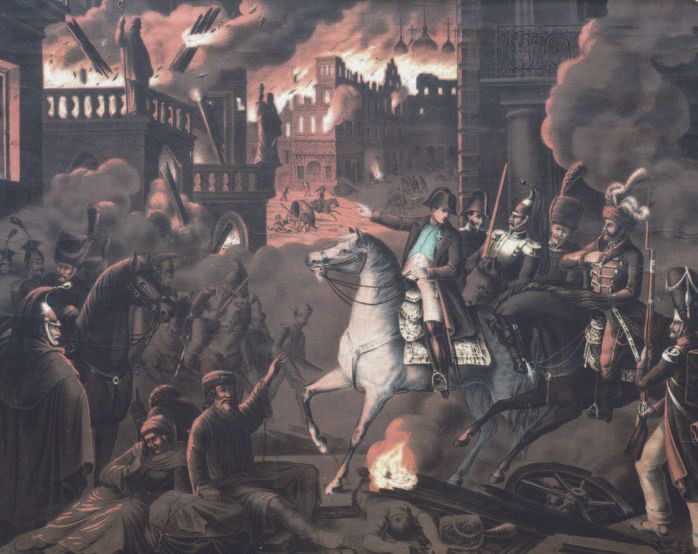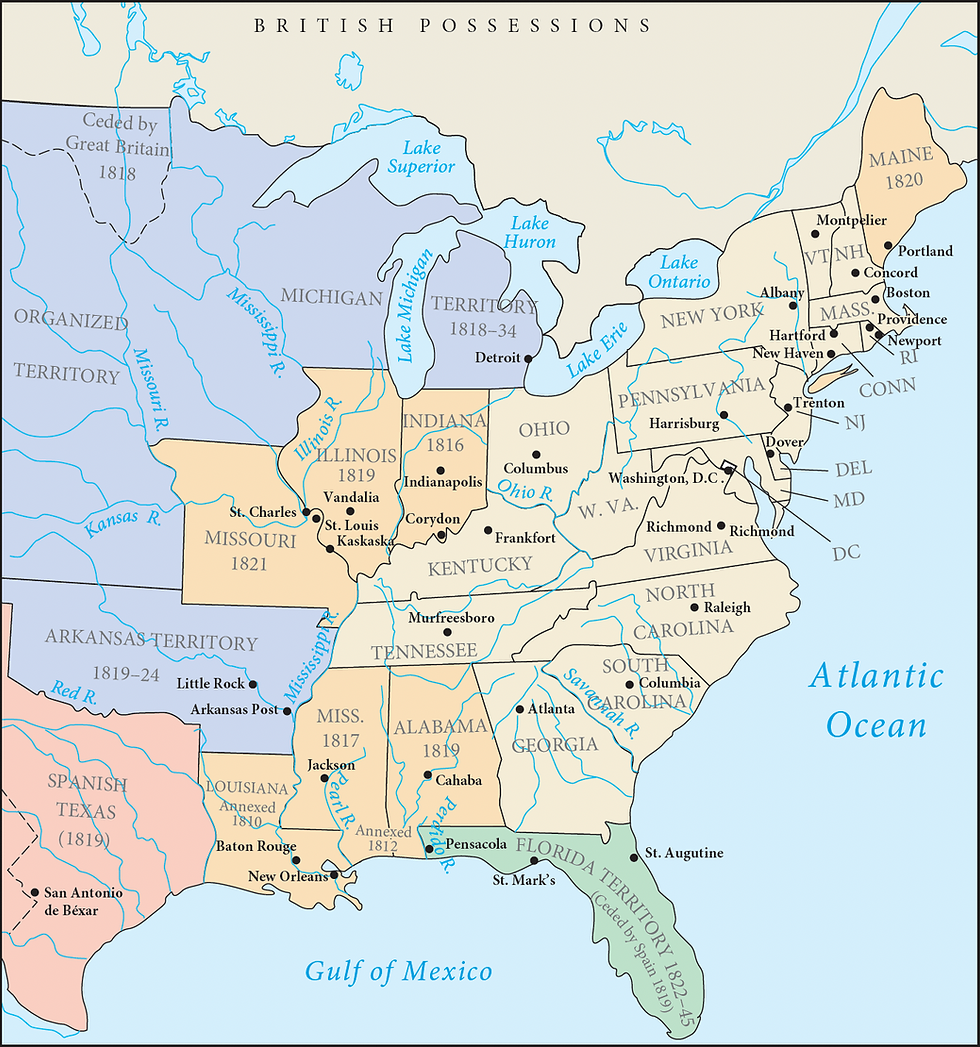Napoleon Triumphantly Enters a Deserted Moscow: September 16, 1812
- Catholic Textbook Project

- Sep 12, 2023
- 3 min read
This text comes from our book, Light to the Nations, Part 2.
Unlike other cities he had conquered, Moscow sent no delegation of citizens to greet Napoleon. No crowds of common folk waited to hail him as a deliverer, as had happened in other places. Napoleon met no one, for scarcely anyone was left in the city. After receiving the news that Kutuzov would not defend Moscow, her people—about 200,000 of them, the rich and poor, the high placed and the lowly—had gathered what they could of their possessions and fled. It was an empty, silent city into which Napoleon made his triumphant entry on September 16, 1812.
That day, the emperor of the French took up his quarters in the Kremlin, the ancient abode of the tsar of the Russians. From its windows, he could look out on the strangely beautiful city, so different from any other city in Europe. It was a city of wooden tenements and elaborate palaces, of “modern” 18th-century structures alongside fanciful churches that seemed like visions of fairyland. It was the legendary capital of that strange oriental land, Russia, and it now belonged to Napoleon I, Emperor of the French!
But, that night of September 16, Napoleon’s wonder and pride turned to foreboding and dismay. From those same Kremlin windows he now saw flames arising in different sectors of the city. Soon he learned that these were not isolated fires; as night gave way to day, it became clear that fire was rapidly laying waste to the wooden structures of the poor as well as the stately palaces of the rich.
All of Moscow was burning.

Napoleon gave way to rage. It hardly seemed possible that so great a fire could have been started by chance; but was it possible that the Russians themselves would have given their beloved capital over to such horrible destruction? Were they destroying it, as they had their villages and fields all along the road from Smolensk? “These are Scythians, indeed!” cried Napoleon. “Moscow no longer exists, the Russians are burning it themselves. What a people!”
When Tsar Aleksandr heard of the burning of Moscow, he burst into tears and swore he would never, never surrender to the barbarous French. If his army were destroyed, said the tsar, he would lead the common people of Russia against the enemy. He would not “subscribe to the shame of my country and my good subjects, whose self-sacrifice I know how to value. God is trying us,” he said. “Let us hope he will not leave us. Either Napoleon or I—I or Napoleon; but we cannot rule together. I have already learned his character; he will deceive me no more.”
The fires raged in Moscow for two weeks, and while they raged, the Grand Armée carried out its own destruction. Soldiers desecrated churches, stripping them of their ornaments; they dug the bones of saints from their shrines, casting them into the streets. The sanctuaries of many churches were used as stables or as places for drunken revelry. God’s human temples fared no better. The few Russians left in the city (some criminals, others just unfortunate poor) were treated with great brutality. And, though he protected one church and a hospital, Napoleon did nothing to stop the violence. Indeed, it seemed it had all passed beyond even his power to control.
And while most of Moscow was burning to a heap of ashes, autumn was moving toward winter. The destruction of the city meant the Grand Armée was without sufficient food or fuel; it could not survive the winter in the depths of Russia. Napoleon realized this and knew he had lingered in the city too long. He had to get back to his encampment on the Niemen, or all was lost.
Thus, on October 19, 1812, the great imperial army of France began its retreat from Moscow. Now only about 115,000 soldiers remained out of the over 400,000 who had crossed the Niemen only four months before. Following the army in a long train as it passed through the city gates were thousands of wagons, loaded with the spoils of Moscow.
A Russian Hymn Drives Out the Marseillaise
Pyotr Ilyich Tchaikovsky wrote his 1812 Overture in 1880 to commemorate Russia’s triumph over Napoleon. The overture opens with the melody of the Russian Orthodox hymn, Spasi Gospodi Iyudi Tvoya (“Save Thy People, O Lord…”), here sung by a chorus. A fragment of the French revolutionary song La Marseillaise sounds throughout the piece, but is at last driven out by a reprise of the Russian hymn, joined by the anthem God, Save the Tsar, and repeated volleys of cannon fire.


